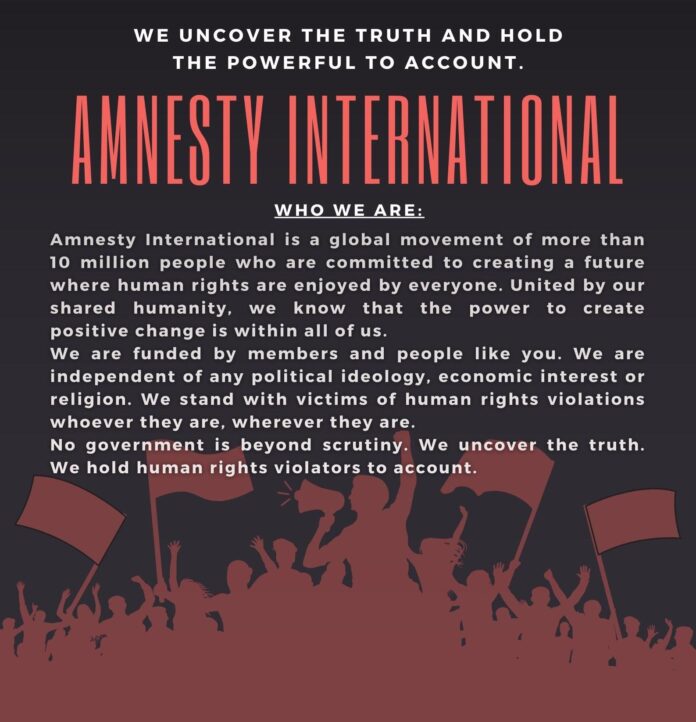Lied Library recently acquired “Amnesty International Archives: A Global Movement for Human Rights,” a database that includes content on human rights available for all UNLV students, faculty and staff to access.
Amnesty International is a global human rights organization that campaigns to end human rights violations in over 150 countries. According to the University of Minnesota’s Human Rights Resource Center, human rights was not a universally developed concept in international politics and law the way it is today in the western world. It was plainly accepted that violence, casualties and torture of civilians was an expectation of war. However, throughout the middle of the 20th century, human rights gained popularity and developed to what it is today.
Human rights can be thought of as rights, by virtue of one’s humanity, that cannot be infringed upon by a state. Some examples of human rights are the right to not be tortured or killed as a civilian and the right to freedom of speech. The database contains archival records of Amnesty International’s Secretariat from 1961 to 1991 and includes releases, posters, organizational records and more than 50 hours of oral history. More information is shared in an announcement on the library’s website. It reads, “The collection is useful for studying the history of key political events, global social change, human rights violations and campaigns with themes including abolition of torture, state violence, political prisoners, minority rights, and more.”
Susie Skarl, a librarian at Lied Library, shares how databases like these help students in their research. Skarl says, “We can really expose them and introduce them to all sorts of things, such as library databases. Databases are paid by the library, so students can have access to both scholarly, popular and trade information. Anything from current newspapers, old newspapers, scholarly content. And the content was already evaluated for authority and accuracy. You hear students say, ‘I’ll just Google it.’ And that’s all good, but sometimes you’ll get stuff for free, and other times, they’ll say you can’t get this info without paying for it. And the information on Google or the internet isn’t evaluated for accuracy, so it might be misleading, incorrect or biased. The databases we introduce students to can help limit or expand their search into what they’re needing.”
Skarl recommends that students reach out to a librarian or attend their workshops to learn more about how to research. Skarl notes, “A lot of times, with new students, undergrads or people returning to school after a few years, they might be overwhelmed. [They’ll think], ‘Where do we go for this? My professor said I need three scholarly articles.’ And when they get help with a librarian, we do receive a lot of great feedback, where basically the lightbulb goes off. They’ll say, ‘I didn’t know you had all this great information. I didn’t know it’d be this easy to find.’ At first, they might be overwhelmed or confused on where to go, but once they realize where to go, they realize the tools we have and how to search, the information is readily available.”
The database for Amnesty International’s archives can be found in the Library’s A-Z list of databases.

